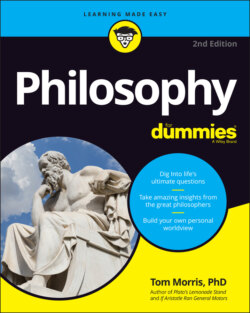Читать книгу Philosophy For Dummies - Tom Morris - Страница 54
Memory
ОглавлениеHow do you know that the mental function of memory is ever reliable? How do you know that it ever gives you trustworthy representations of the past, or true beliefs? Notice that the question here is not whether memory is always reliable, or even trustworthy a large portion of the time. Most people will admit that it’s not the utterly dependable thing it typically purports to be. After all, “Memory is the thing you forget with,” at least according to this telling admission by the journalist Stuart Alexander Chase.
But the question is not whether memory is infallible or even mostly reliable. The skeptic wants to know whether human memory is ever reliable at all. This may seem like a silly question to ask. But watch what happens when you try to answer.
How do you know that memory is ever reliable? Well, you might answer that at least you know that your memory is often reliable. But how do you know even that? Simple. You can recall many times in the past when you seemed to remember parking in a particular place, and there the car in fact was. You may recall many times remembering where you put your phone, and you were right. It was indeed in that place you recalled.
But wait a second. If that’s how you justify ever relying on memory, by appealing to your memory of past success and saying that it has sometimes been reliable in the past, you are relying on memory to justify memory, and so you are engaging in unhelpfully circular reasoning, reasoning that just assumes the truth of the thing you are trying to prove. That is to say, you have not yet produced a single shred of untainted evidence for what needed such evidence.
But another tack is possible. Let me try. In the third grade, my teacher once told me that I had a photographic memory. And I still may; I just don’t have same-day service anymore. Actually, I think the film was exposed somewhere along the way. But, surprisingly often, other people still praise my memory. If that’s my answer to the question of how I know memory ever to be reliable, I have a double problem. First, I am still relying on my memory of what people have said about my memory. And second, this will be a good argument only if I have some independent reason to believe that the testimony of other people is sometimes reliable, and that needs to be established on its own merits. In the next section, we see the problem we run into when we try to justify ever relying on testimony.
